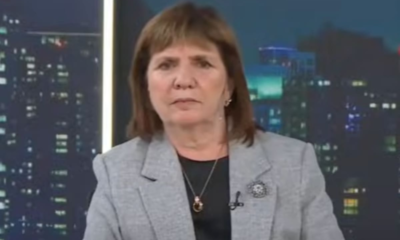INTERNACIONAL
Senate parliamentarian: Who is the unelected official getting say on Trump’s ‘big, beautiful bill?’
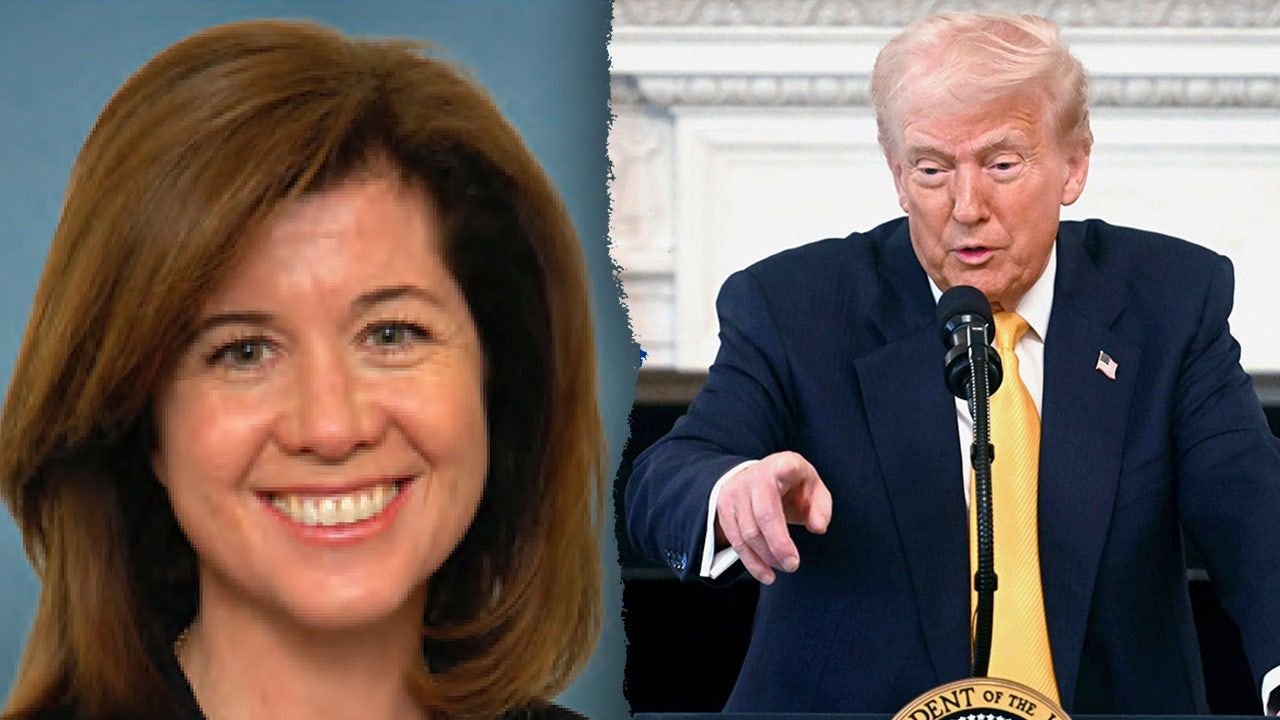
Marjorie Taylor Greene rules out Senate run
Bluestack Strategies founder Maura Gillespie joins ‘The Fox Report’ to break down Rep. Marjorie Taylor Greene’s, R-Ga., announcement that she will not pursue a Senate run, and what it means for her political future.
House and Senate Republicans have been working for months on a sweeping piece of legislation addressing a litany of President Donald Trump’s agenda items.
Such a bill is possible via the budget reconciliation process, which allows the party controlling Congress and the White House to pass broad policy overhauls while totally sidelining the minority. It lowers the Senate’s threshold for passage from 60 votes to 51, lining it up with the House’s simple majority rules.
However, one of the caveats is that the measures tucked into the bill must deal with taxes, spending or the national debt. One key person gets the final say over what is relevant to that sphere – the Senate parliamentarian.
The parliamentarian, who heads the Senate’s parliamentarian office, is a nonpartisan, unelected role appointed by the Senate majority leader. It does not have a fixed term.
ANTI-ABORTION PROVIDER MEASURE IN TRUMP’S ‘BIG, BEAUTIFUL BILL’ COULD SPARK HOUSE GOP REBELLION
Senate parliamentarian Elizabeth MacDonough will be advising Senate Republicans on President Donald Trump’s «big, beautiful bill.» (Getty Images/Reuters)
The person’s role is to advise the Senate and its staff on the chamber’s rules and precedent. The normally low-profile role has been thrust into the spotlight several times in congressional history, however, particularly surrounding reconciliation.
«At the end of the day, it really is a judgment call. And sometimes you’re making a judgment call where you’re relying on similar situations or maybe analogous situations where we dealt with reconciliation in the past, maybe other times you’re dealing with a completely novel issue, and you’re having to figure it out,» one former senior Senate aide described to Fox News Digital.
«Or maybe, and this happens a lot, people are trying get things through, debating or citing past provisions of previous reconciliation bills…saying ‘Hey, this provision is very similar, and this got through.’»
The Senate parliamentarian leads the «Byrd bath,» a key part of the reconciliation process where the legislation is carefully examined, and any measures found not relevant to the contours of reconciliation are stripped out.
Notably, progressive Rep. Ilhan Omar, D-Minn., called for the firing of the Senate parliamentarian in 2021 when she forced Senate Democrats to scuttle their $15 per hour minimum wage effort from their reconciliation bill at the time.
That same parliamentarian, Elizabeth MacDonough, who was appointed by the late former Senate Majority Leader Harry Reid, D-Nev., is still serving today and has largely garnered bipartisan respect for her handling of the role.
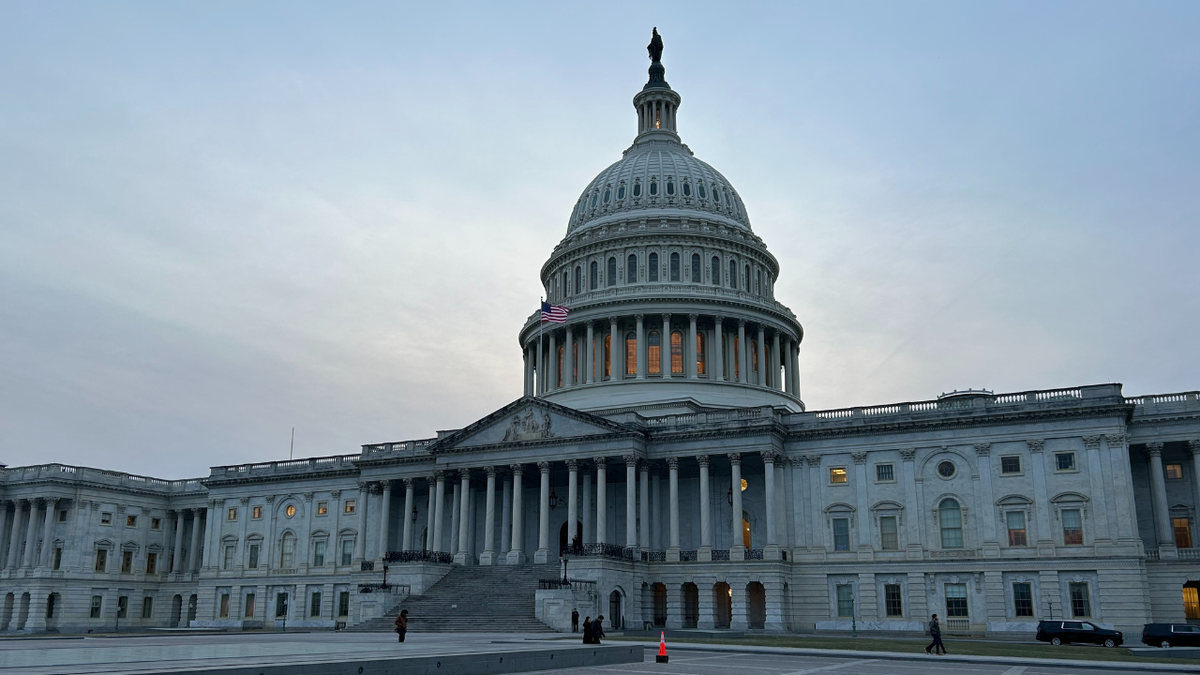
Congressional Republicans are using the budget reconciliation process. (Fox News Digital)
MacDonough, appointed in 2012, is the first woman in the job. She was a part of the parliamentarian’s office before that and briefly served as an attorney in the Department of Justice, according to NPR.
«I would say that this particular parliamentarian sees herself more as, almost an administrative law judge, and I think that she has generally viewed some of the things that the Senate has been allowed to get away with in reconciliation as a departure from precedent,» said Paul Winfree, president of the Economic Policy Innovation Center and a former Senate Budget Committee staffer himself, told Fox News Digital.
«I think that she has more of a ‘small-c’ conservative approach to what is allowable. At the same time, a lot of what is considered to be allowable under reconciliation is dependent on estimates that are produced by the Congressional Budget Office or the joint tax committee.»
When asked if any of the current public reconciliation plans could face issues with the parliamentarian, both people who spoke with Fox News Digital floated an accounting maneuver that would largely obscure the cost of permanently extending Trump’s 2017 Tax Cuts and Jobs Act.
That scoring method, known as current policy baseline, would zero out the cost of extending the 2017 tax cuts by measuring it as an extension of the current economic conditions, rather than factoring in how much less the government is taking in via tax revenues with the cuts in effect.
Senate Republicans have signaled they believe they have the legal basis for moving forward with that calculation, however, without the parliamentarian’s say.
«We think the law is very clear, and ultimately the budget committee chairman makes that determination,» Senate Majority Leader John Thune, R-S.D., told reporters last month.
HOUSE REPUBLICANS RELEASE TAX PLAN FOR TRUMP’S ‘BIG, BEAUTIFUL BILL’
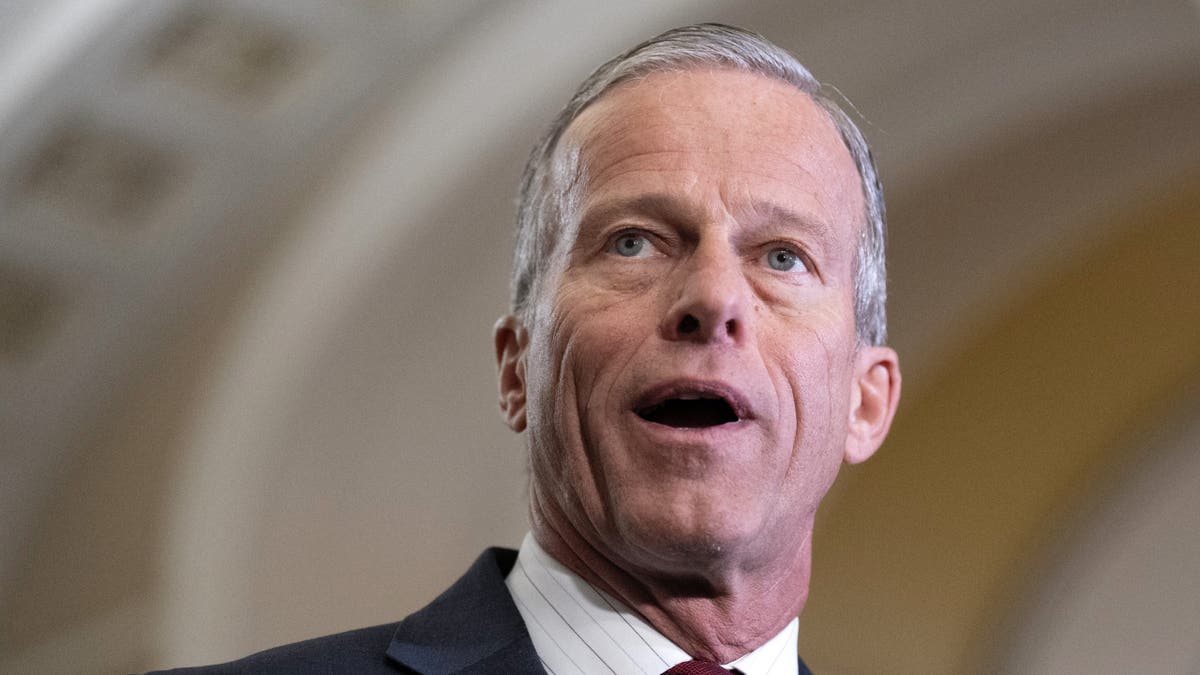
Senate Majority Leader Sen. John Thune said Republicans can use the current policy baseline for scoring tax cuts. (AP Photo/Jacquelyn Martin)
The Senate GOP aide who spoke with Fox News Digital said, «If that were to have fallen out or just, you didn’t know what was going to happen, that would just affect so many provisions in the bill.»
«Because all of a sudden, you know, all these things start scoring [as an increase to the deficit]…and things become more problematic with your instructions,» the former aide said.
CLICK HERE TO GET THE FOX NEWS APP
Winfree, however, said Republicans have appeared to be mindful overall with how they have written the text so far.
«They’ve actually been pretty conservative in how they’ve approached the language,» he said.
He said it was «possible some of the immigration provisions could get a second look,» but that even then, he believed it would «ultimately be okay.»
Republican leaders have said they hope to have a bill on Trump’s desk by Fourth of July.
Fox News Digital reached out to the current Senate Majority Leader’s office for comment.
Senate,Donald Trump,Republicans,Politics
INTERNACIONAL
Schumer, Democrats try to save face, blame GOP for possible government shutdown
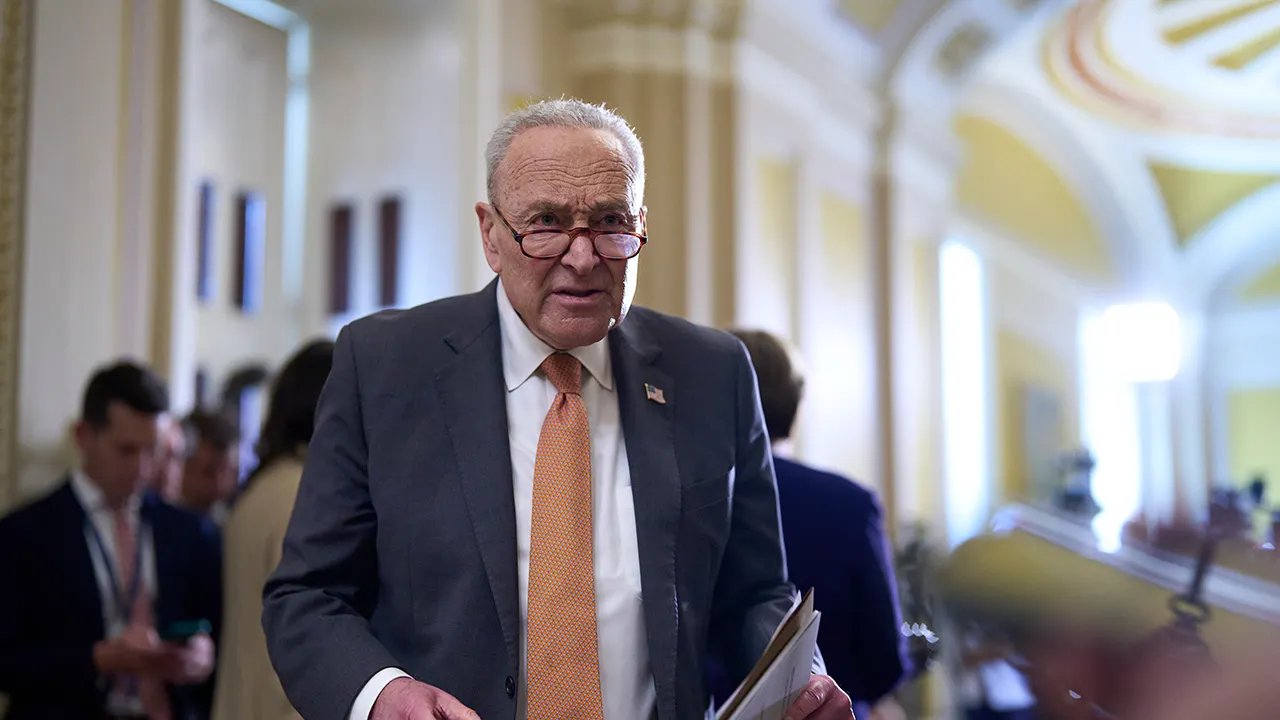
NEWYou can now listen to Fox News articles!
Congressional Democrats are trying to get on the same page and display a unified front after threatening to derail the government funding process.
Senate Minority Leader Chuck Schumer, D-N.Y., and House Minority Leader Hakeem Jeffries, D-N.Y., met behind closed doors Tuesday night, along with the top Democrats in the House and Senate Appropriations Committees, to plot a course forward in the forthcoming government funding fight.
SENATE WEATHERS DEM OPPOSITION, ADVANCES FIRST GOVERNMENT FUNDING BILL
Senate Minority Leader Chuck Schumer, D-N.Y., turns to an aide during a news conference at the Capitol in Washington, D.C., on June 3, 2025. (AP Photo/J. Scott Applewhite)
The meeting came after Democrats in the upper chamber overwhelmingly supported the first government funding bill to hit the Senate floor, one that would fund military construction and Veterans Affairs. Ahead of the vote, Senate Democrats had signaled they may vote against the bill and further obstruct the appropriations process because of highly partisan legislation rammed through the upper chamber by Senate Republicans.
«We all want to pursue a bipartisan, bicameral appropriations process,» Schumer said. «That’s how it’s always been done, successfully, and we believe that, however, the Republicans are making it extremely difficult to do that.»
The meeting just off the Senate floor was meant to get congressional Democrats on board with a messaging plan over the next weeks and months ahead of the Sept. 30 deadline to fund the government.
CONGRESSIONAL REPUBLICANS FACE BRUISING BATTLE TO AVOID GOVERNMENT SHUTDOWN
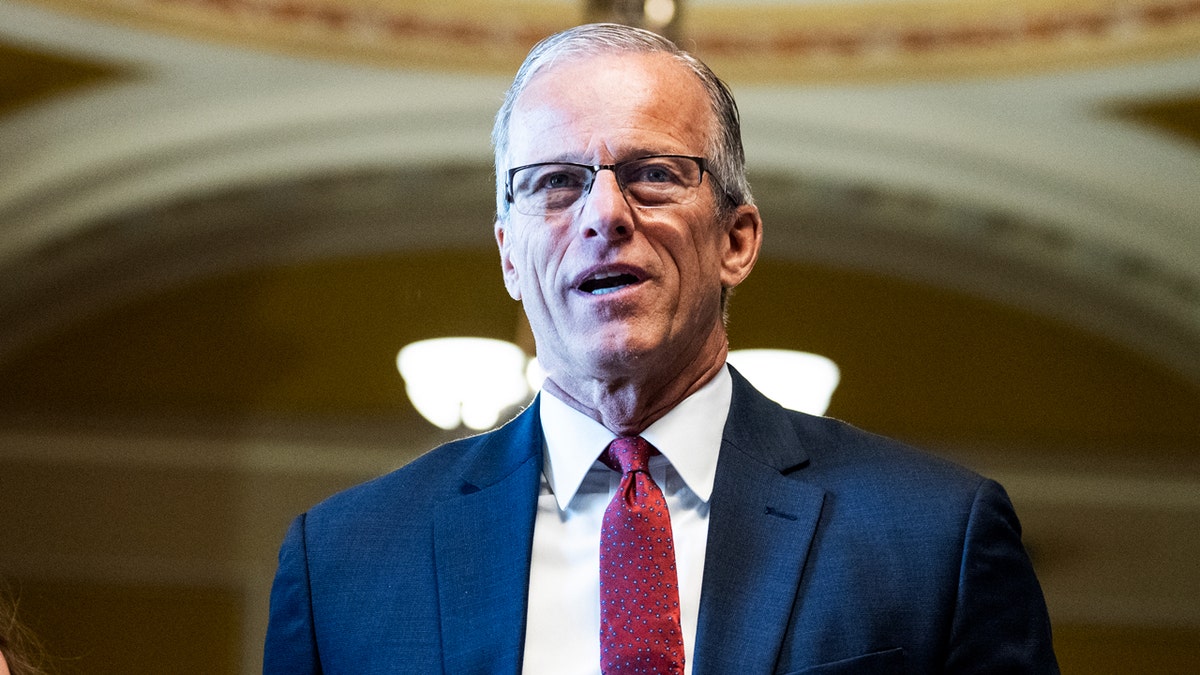
Senate Majority Leader John Thune, R-S.D., is seen after the Senate luncheons in the U.S. Capitol on June 24, 2025. (Tom Williams/CQ-Roll Call, Inc via Getty Images)
It was also likely designed to prevent a repeat of the Democratic debacle in March, when Schumer broke with Jeffries and threatened to shutter the government before ultimately caving and providing Republicans the votes necessary to advance yet another government funding extension, known as a continuing resolution.
Republicans are quick to point out that when Schumer led the upper chamber, none of the House GOP’s spending bills made it to the floor — in Congress, the spending process begins in the lower chamber.
Since taking over earlier this year, Senate Majority Leader John Thune, R-S.D., has committed to returning to regular order, or passing each of the dozen spending bills to fund the government, and trying to get the appropriations process back to normal.
However, it’s a feat that hasn’t been successfully done in Washington since the late 1990s.
«Frankly, I think a lot of us around here think [this] is long overdue,» Thune said.
However, Democrats contend that their trust in Republicans is wearing thin after two major partisan bills, one being President Donald Trump’s «big, beautiful bill,» and the other the president’s $9 billion clawback package, were pushed through the chamber without any Democratic input.
‘BAIT AND SWITCH’: SCHUMER WARNS OF BITTER FUNDING FIGHT OVER GOP CUTS PLAN

Representative Hakeem Jeffries, a Democrat from New York, speaks during a news conference at the U.S. Capitol in Washington, D.C., on Feb. 6, 2025. (Tierney L. Cross/Bloomberg via Getty Images)
Thune argued that Senate Democrats were using the rescissions package to shut down the appropriations process and effectively shut down the government.
In the Senate, most bills that come to the floor require at least 60 votes to smash through the filibuster, meaning that most legislation requires bipartisan support to some extent.
Earlier this year, the House GOP produced a partisan government funding extension that was a tough pill for Senate Democrats to swallow, but they still ultimately opted to vote for it. This time around, they’re demanding more involvement in the process.
CLICK HERE TO GET THE FOX NEWS APP
Jeffries said that congressional Democrats would play ball if the process was «bipartisan and bicameral in nature» and put the onus of a partial government shutdown at the feet of congressional Republicans.
«House Republicans are, in fact, marching us toward a possible government shutdown that will hurt the American people,» he said.
However, House Speaker Mike Johnson, R-La., threw the responsibility on Democrats over whether the government would shutter or stay open come the end of September.
«They’re gaming out how they can shut the government down,» Johnson told Bloomberg Government.
INTERNACIONAL
Ucrania: el presidente Volodimir Zelenski enfrenta críticas y protestas por una nueva ley anticorrupción

Advertencia de funcionarios de la UE
Negociaciones en Estambul
Ucrania,Volodímir Zelenski,Rusia,Guerra Rusia-Ucrania
INTERNACIONAL
Trump admin official to meet with Israel, Qatar amid push for Gaza ceasefire

NEWYou can now listen to Fox News articles!
Special Envoy Steve Witkoff is expected to meet with Israeli and Qatari officials in Rome on Thursday as the U.S. pushes for a ceasefire deal in Gaza.
Hamas and Israel are engaging in indirect negotiations to end the war that has raged on for nearly two years. However, Witkoff’s itinerary depends on the progress made in the talks. If the parties make enough progress in Rome, Witkoff will reportedly travel to Doha to finalize the deal, according to Axios.
The outlet also reported that sources indicated the meeting in Rome could suggest that a deal is near — possibly just days away.
Earlier this month, Israel agreed to a U.S.-backed, 60-day ceasefire proposal that would lead to the end of the war. This deal includes a phased release of hostages, the withdrawal of Israeli troops from parts of Gaza and talks on ending the conflict, according to Reuters.
Special Envoy Steve Witkoff is expected to meet with Israeli and Qatari officials in Rome on Thursday to secure a deal to end the war in Gaza. (Dawoud Abo Alkas/Anadolu/Kevin Dietsch/Getty Images)
ISRAEL, HAMAS TALKS DRAG AS AID GROUP CHAIR TELLS UN TO STOP ACTING LIKE THE ‘MAFIA’
«My representatives had a long and productive meeting with the Israelis today on Gaza. Israel has agreed to the necessary conditions to finalize the 60 Day CEASEFIRE, during which time we will work with all parties to end the war. The Qataris and Egyptians, who have worked very hard to help bring peace, will deliver this final proposal. I hope, for the good of the Middle East, that Hamas takes this deal because it will not get better — IT WILL ONLY GET WORSE,» President Donald Trump wrote on Truth Social on July 1.
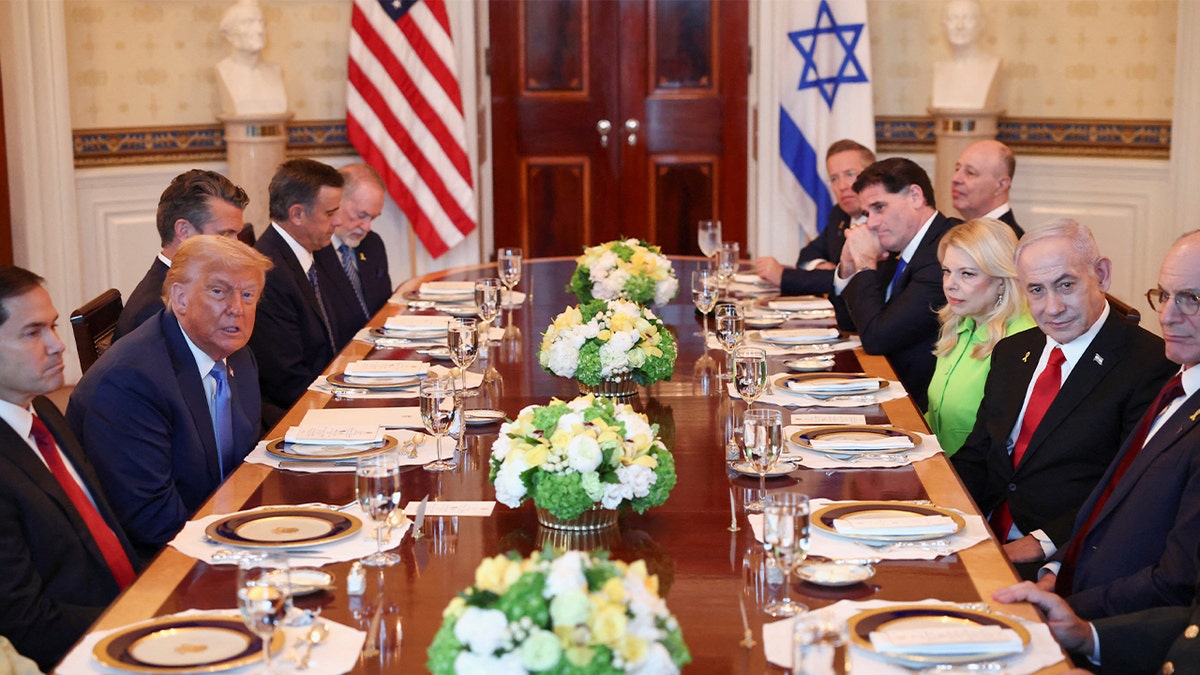
President Donald Trump holds a bilateral dinner with Israeli Prime Minister Benjamin Netanyahu, with Defense Secretary Pete Hegseth and Secretary of State Marco Rubio in attendance, at the White House in Washington, D.C., July 7, 2025. (REUTERS/Kevin Lamarque)
ISRAEL ACCEPTS TRUMP-LED CEASEFIRE PLAN THAT COULD END GAZA WAR WITHIN 60 DAYS
Trump appeared optimistic about the possibility of Israel and Hamas reaching a deal to end the war. On July 16, while signing the HALT Fentanyl Act, Trump thanked Witkoff, praising him for doing «a fantastic job» and said that there was «some good news on Gaza,» though he did not elaborate.
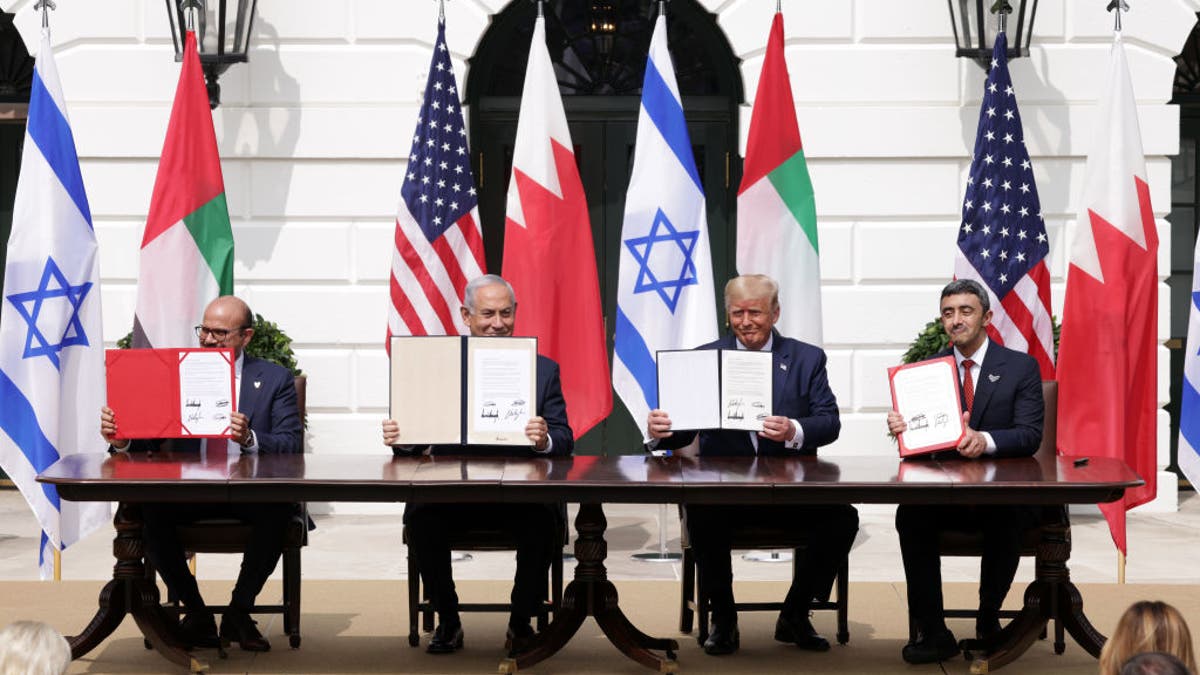
From left to right, Foreign Affairs Minister of Bahrain Abdullatif bin Rashid Al Zayani, Prime Minister of Israel Benjamin Netanyahu, President Donald Trump and Foreign Affairs Minister of the United Arab Emirates Abdullah bin Zayed bin Sultan Al Nahyan participate in the signing ceremony of the Abraham Accords on the South Lawn of the White House on Sept. 15, 2020, in Washington, D.C. (Photo by Alex Wong/Getty Images)
TRUMP PRESSURES ISRAEL TO END GAZA CONFLICT AS HE EYES ABRAHAM ACCORDS EXPANSION
If Trump can secure an end to the war, it could mean an expansion of the Abraham Accords, one of the signature efforts of Trump’s first administration, which saw Israel sign normalization agreements with the United Arab Emirates, Bahrain, Morocco and Sudan. However, Trump has yet to detail which countries would be added.
Israeli Minister of Foreign Affairs Gideon Sa’ar said on June 30 that Israel was «serious» about seeking an end to the conflict. He added that Jerusalem has an interest in «countries, such as Syria and Lebanon, our neighbors, to the circle of peace and normalization.»
CLICK HERE TO GET THE FOX NEWS APP
Fox News Digital’s Greg Wehner and Caitlin McFall contributed to this report.

 POLITICA3 días ago
POLITICA3 días agoExpulsada del Gobierno, Victoria Villarruel empieza a tomar distancia, pero no tiene proyecto político para este año

 POLITICA3 días ago
POLITICA3 días agoLa CGT evalúa adelantar a octubre el recambio de sus autoridades y define una movilización contra Milei

 POLITICA2 días ago
POLITICA2 días ago🗳️ El chamuyo de las elecciones en la Provincia: se postulan, pero no a asumen























